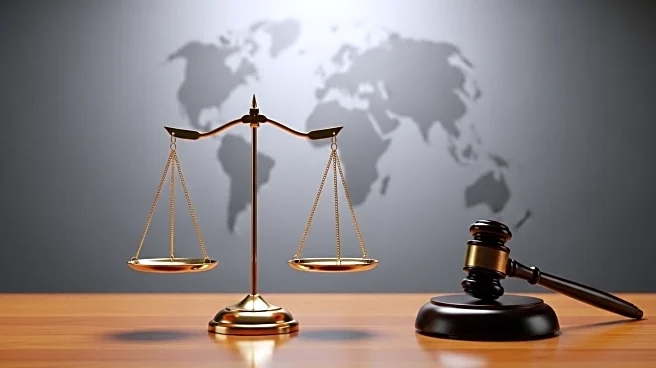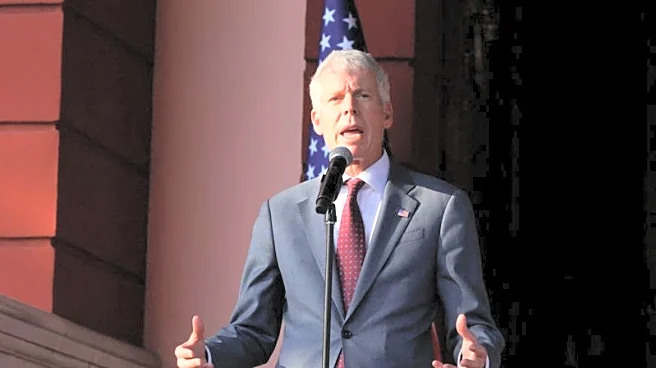What's Happening?
The Supreme Court has agreed to expedite its decision on President Trump's authority to impose tariffs without congressional approval, a key policy of his administration. The court will hear arguments in November regarding the legality of these tariffs, which include a 34% tariff on China and a 10% baseline for other nations. Meanwhile, Israel's recent strike on Hamas leaders in Qatar has drawn rare criticism from the White House. President Trump expressed dissatisfaction with the strike, emphasizing the need to retrieve hostages. The Israeli government had notified the U.S. of the impending strike, but the U.S. was not directly involved. The attack was described by Israel as retaliation for recent attacks in Jerusalem and Gaza.
Why It's Important?
The Supreme Court's decision on tariffs could significantly impact U.S. trade policy and international relations. If President Trump is granted authority to impose tariffs unilaterally, it could lead to increased trade tensions and affect global markets. The criticism of Israel's actions in Qatar highlights the complexities of U.S. foreign policy in the Middle East, where balancing alliances and regional stability is crucial. The situation underscores the challenges in managing diplomatic relations and the potential repercussions on peace efforts in the region.
What's Next?
The Supreme Court's upcoming hearing will be closely watched by international trade experts and policymakers, as its decision could redefine executive power in trade matters. In the Middle East, the U.S. may face diplomatic challenges in maintaining its alliances while advocating for peace. The reaction from Hamas and other regional actors could influence future negotiations and conflict resolution efforts.











